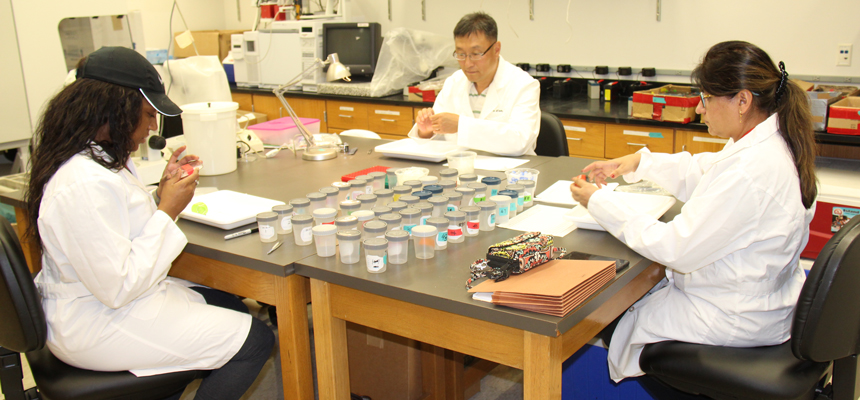Mosquito monitoring protects Fort Worth again this year
While most people do everything they can to avoid mosquitos in the summer, medical entomologist Joon-Hak Lee, PhD, goes out of his way to track them down.
Dr. Lee, an Associate Professor of Biostatistics and Epidemiology at the UNT Health Science Center School of Public Health, has spent the last six mosquito seasons researching the insects’ activities and predicting trends for the City of Fort Worth, in an effort to keep the community informed on the risk of West Nile virus (WNV).
Five days a week from May through October, Dr. Lee and student researchers can be found placing traps around town, collecting mosquitos and analyzing them back at the UNTHSC-campus lab. While there are other viruses like Zika and Chikungunya that can be transmitted by mosquitos, the threat of WNV is by far the most pressing concern in Texas and the local Tarrant County area, Dr. Lee said.
This year, 50 mosquito-monitoring sites are active across the city, with another 12 trapping stations set up at parks, including the Fort Worth Botanic Gardens, Fort Worth Zoo and the Fort Worth Nature Center and Refuge.
Mondays are reserved for setting the traps, with pickup and processing on Tuesdays. Mosquito samples are analyzed in the lab on Wednesdays, and updates are provided to Fort Worth officials each Thursday via conference calls and written reports.
“It’s a consistent approach throughout the summer,” Dr. Lee said, “so that local residents can be alerted if they need to take extra precautions when planning their outdoor activities.”
Communications for the public – through signage, emails, news briefs, neighborhood association meetings, even door-to-door campaigns if warranted – are generally the first methods used when the threat of mosquito-borne infection is high, before pesticide spraying is employed. The city’s website also offers a list of tips for keeping mosquitos away when spending time outside.
“The goal is to protect and prevent,” Dr. Lee said. “The city’s mosquito surveillance relationship with UNT Health Science Center over the last six years demonstrates an ongoing commitment to protecting citizens and being ready to take action as needed for their health and safety.”





Social media